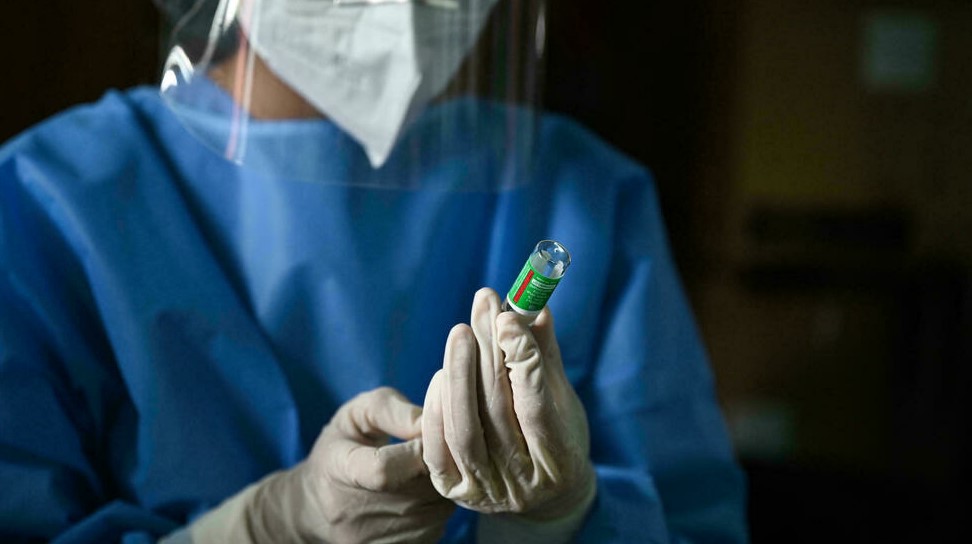Myanmar is set to receive six million Covid-19 vaccines from China by August, a government official said Wednesday, as cases surge in the coup-wracked country.
The military government has "bought four million" doses and Beijing will donate a further two million, a senior official from the information ministry told AFP on condition of anonymity.
The first one million doses would arrive during the last week of July, the official added.
They did not give details on which vaccine China would supply, or a precise arrival date for the remaining five million.
Myanmar is confronting a new outbreak with thousands of health workers on strike against the February coup, which ousted civilian leader Aung San Suu Kyi.
On Wednesday, the State Administration Council -- as the military junta calls itself -- reported more than 7,000 new cases, up from fewer than 50 per day in early May.
In recent days, hundreds have queued for oxygen supplies across the commercial capital Yangon and the second city of Mandalay, AFP images showed.
Over 4,100 have died from the virus in Myanmar, according to official figures, although analysts say the true toll is likely higher.
Around 1.75 million people have so far been vaccinated in the country of 54 million, according to authorities.
Beijing enjoys exceptional leverage over Myanmar and has refused to label the military action a coup.
Earlier this month, state media reported junta leader Min Aung Hlaing had agreed to buy two million vaccines from Russia -- another major ally -- without specifying which shot.
Myanmar's creaking healthcare system had struggled to respond to Covid even before the generals' putsch.
Swathes of the country were put under partial lockdown last year, although enforcement was often lax in the developing nation where many face a stark choice between following regulations and feeding their families.
